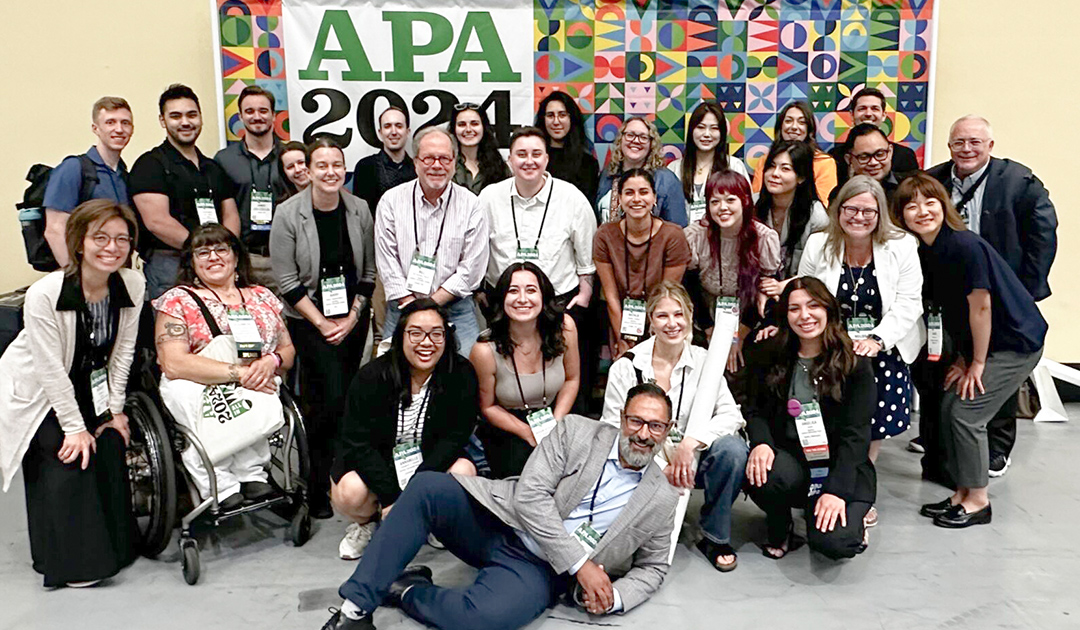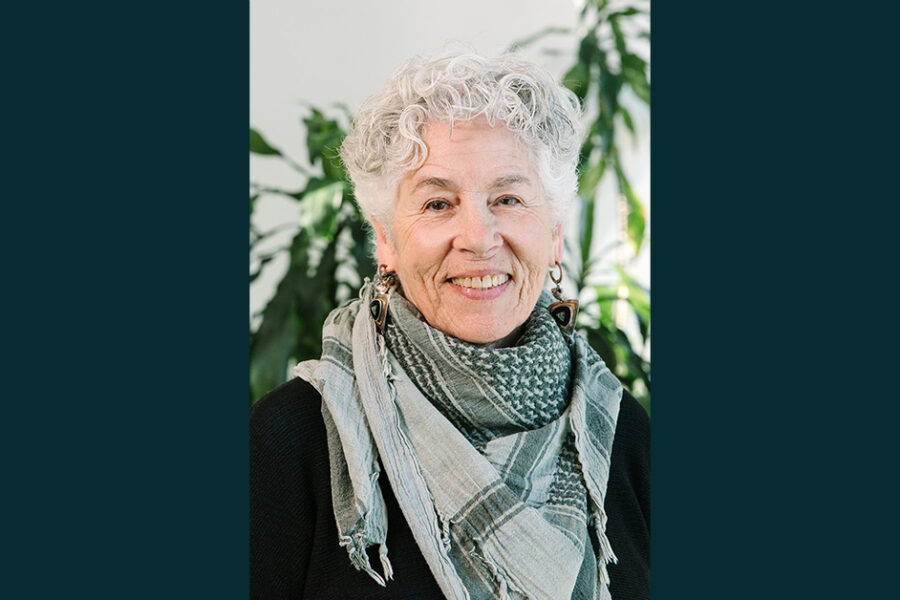Over 40 students and many faculty from the PsyD in Clinical Psychology program at Antioch University’s Seattle campus participated in this year’s American Psychological Association Conference. Over August 7-10, 2024, these Antiochians joined over 10,000 other attendees from around the world. The large contingent was partially enabled because the conference was held in Seattle this year, relatively close to the Seattle campus. PsyD students, faculty, and alumni gave numerous poster presentations, symposia, and workshops.
The PsyD program’s commitment to fostering a social justice-minded community of scholars and practitioners was evident in the diverse range of poster presentations and talks given by Antioch students, faculty, and alumni. They presented topics such as the transition to motherhood during the COVID-19 pandemic, pathways to suicidality, trans erasure, and more.
According to Melissa Kennedy, a Core Faculty member in the Seattle PsyD, this year’s conference was particularly exciting for the program. “We had over 40 students participating through poster presentations, symposiums, and workshops,” she says. “The presence of the conference in Seattle allowed these, and all our other students, the opportunity to attend sessions, learn from researchers, sense the direction of our field, and interact with national and international psychologists.”
The program’s faculty also played a pivotal role in the conference. Steven Curtis, a longtime affiliate faculty member in the PsyD, delivered the presidential address for Division 55, the Society for Prescribing Psychology. He has been serving in this role since January. He was joined by 11 Antioch University, Seattle, students who presented posters in the Division 55 portion of the conference. Curtis is currently working to develop a Master of Science in Clinical Psychology that he hopes will be approved to be part of Antioch University’s offerings.
“I worked very hard on developing and delivering the presidential address,” says Curtis. In it, he spoke about the core work of the Society for Prescribing Psychology: to equip clinical psychologists to prescribe medicines to their patients. “The Washington State Psychological Association is supporting a bill in the legislature this year to legalize RxP,” explains Curtis. This bill, if passed, would allow licensed psychologists to prescribe medication, further expanding the scope of practice for psychologists in Washington state.
A number of students, faculty, and alumni presented posters at the event. One poster among many was recent PsyD alums Malea Lash, Alexa Hutzenbiler, and Amber Peterson’s, which was “Understanding the Transition to Motherhood During the COVID-19 Pandemic.” This appeared as part of the hall organized by Division 35, the Society for the Psychology of Women. This presentation highlighted the challenges faced by new mothers during the pandemic and the importance of community support.
Current student Angelica Jaegle and Core Faculty member Melissa Kennedy presented a poster on “Pathways to Suicidality” as part of the exhibition put on by Division 9, the Society for the Psychological Study of Social Issues. This presentation explored the complex factors contributing to suicidality and the need for comprehensive prevention strategies.
Kennedy presented another poster, this one with AJ Gurley-Green, on “Trans Erasure: A Review of Social and Political Impacts on Gender Identity Development.” This one was part of the section of the conference sponsored by Division 44, the Society for the Psychology of Sexual Orientation and Gender Diversity. This presentation examined the ways in which social and political factors can impact the development of gender identity.
Antiochians also participated by organizing a workshop. This one, titled “What Did You Just Say Lessons from Teaching Cultural Diversity,” was arranged by Kennedy, PsyD Chair Jude Bergkamp, and current PsyD student Natalie Sridhar.
The APA Conference provided a valuable opportunity for Antioch University’s Seattle PsyD program to showcase its strengths and connect with the broader psychological community. As Kennedy notes, “Many of our students were able to connect with other psychologists, some of whom we hope to see participating in dissertation committees and offering mentorship in the broader psychological community.”
The PsyD program’s success at the conference is a testament to the dedication and hard work of its students, alumni, and faculty. As the program continues to grow and evolve, it is clear that Antioch University’s Seattle PsyD program will remain a vibrant and influential force in the field of psychology.




